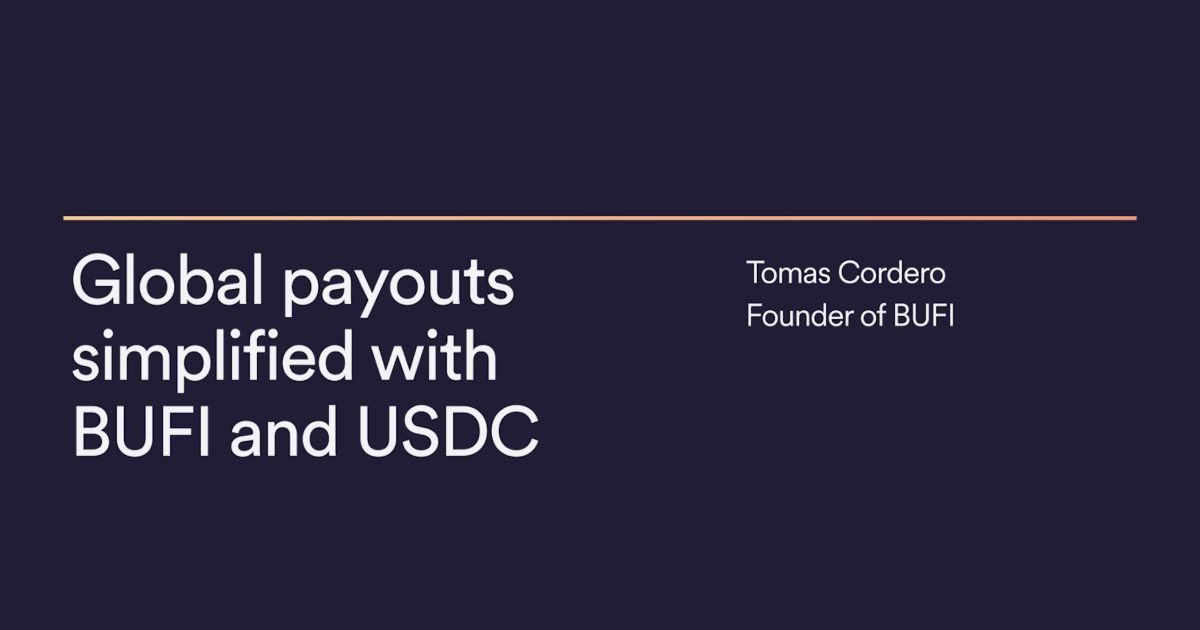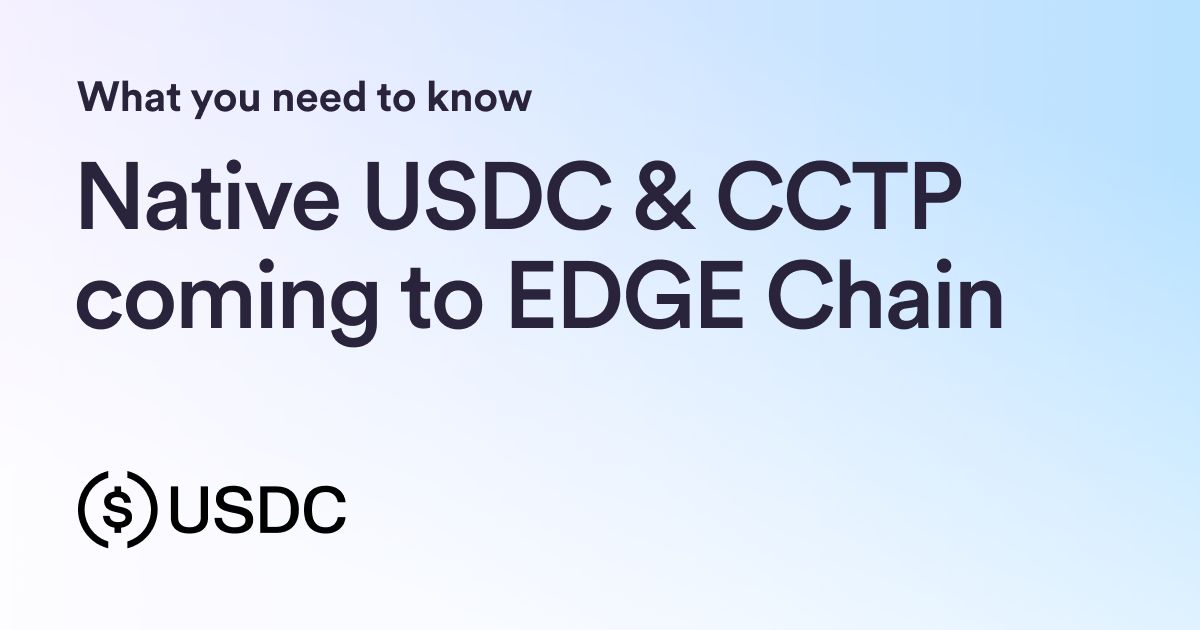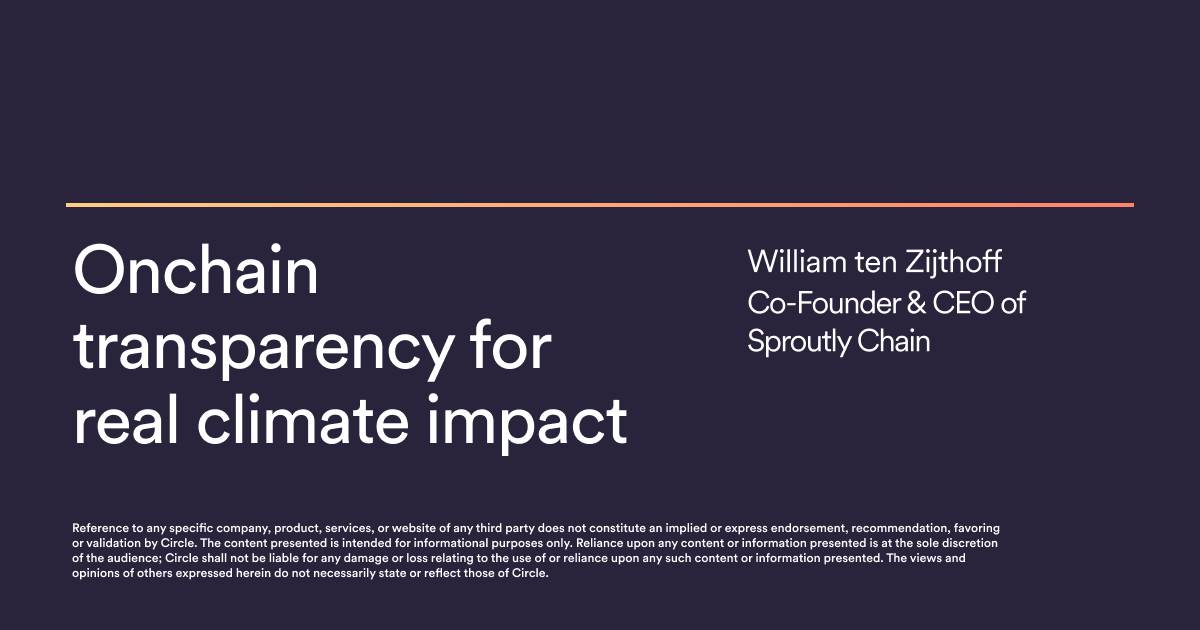BUFI’s financial workspace uses USDC for fast, transparent cross-border payouts, helping global teams get paid quickly so they can focus on work. Learn more.

Across the world, small businesses and creative teams now form across time zones, not office floors. Work happens in Notion, Figma, and GitHub—instantly and collaboratively, from Mumbai to Rio De Janeiro. But, paying one another is still clunky, slow, and expensive. BUFI was built to change that by making the finance of collaboration feel as effortless as the collaboration itself.
BUFI started with a founder’s lived contradiction: global work was easy; moving money wasn’t. Tomás Cordero, BUFI’s founder and CEO, describes a workforce “completely fractionalized,” with funds scattered across banking apps and fintech point solutions that were never designed for small, cross-border teams. That pain sharpened when the team, despite operating a US company — was repeatedly declined by leading fintechs and ultimately flew to the United States just to open an account. “While these fintechs are world-class, they are inaccessible to the rest of the world,” says Tomás. BUFI takes the best capabilities of modern fintechs and banks — payments, cards, invoicing, analytics, and account connectivity — and recomposes them as drag-and-drop widgets in a single workspace.
A smart workspace to empower distributed teams
BUFI feels like opening a new page in Notion and dragging in the finance you need. Teams create financial workspaces with invoicing, analytics, and spend controls, and connect the accounts they already rely on (anything from a local bank to an international bank or exchange) so money can be seen and managed in one place. On top sits a stablecoin-first layer that turns cross-border payouts from multi-day waits into something much closer to real time, and even enables teammates to “get paid like a local” where traditional access is limited.
On the ground, that approach is already helping teams. A marketing and creative agency in Brazil, currently onboarding with BUFI, manages a network that can span from five to 150 collaborators. With BUFI, they track who owes what, keep invoices clean, and let clients pay in their local currencies, often with funds available in a couple of hours so work can keep moving. The outcome is practical and human: time saved, fees reduced, and fewer headaches for owners and contributors alike.
BUFI’s product vision matches its tone: approachable, modular, and transparent. From BUFI’s own site, teams can organize life and work with multiple workspaces, all designed to unify fiat and crypto balances to meet people where they are.
Global Payouts: Powered by USDC, built on trust
USDC provides programmable, reliable digital dollars that make these workflows feel modern, combining the familiarity of a dollar-denominated asset with internet-speed settlement on supported networks. Circle publishes ongoing transparency and reserve information for USDC and EURC, and positions these stablecoins to be used with confidence across payments and more.
“Without USDC and the Circle technology stack, building such a large, customizable product as an MVP wouldn’t have been possible,” says Tomás emphasizing how Circle’s developer platform brings the vision of programmable money to life for small, distributed teams.
“BUFI shows what happens when reliable digital dollars meet real human needs. People get paid on time in a digital asset that makes sense for them so teams everywhere can focus on the work, not the wait,” says Elisabeth Carpenter, Circle’s Chief Strategic Engagement Officer. “When builders like BUFI put USDC to work, cross-border finance stops feeling like a maze and starts feeling like a clear path forward: fast, transparent, and designed for people first.”
By unifying everyday financial tasks in a single workspace and using USDC where speed and predictability matter most, BUFI helps teams focus on what matters most: the work itself, the customers they serve, and the livelihoods behind every invoice.
BUFI isa Developer Grant Recipient.
Reference to any specific company, product, service, or website of any third party does not constitute an implied or express endorsement, recommendation, favoring or validation by Circle. The content presented is intended for informational purposes only. Reliance upon any content or information presented is at the sole discretion of the audience; Circle shall not be liable for any damage or loss relating to the use of or reliance upon any such content or information presented. The views and opinions of others expressed herein do not necessarily state or reflect those of Circle.




